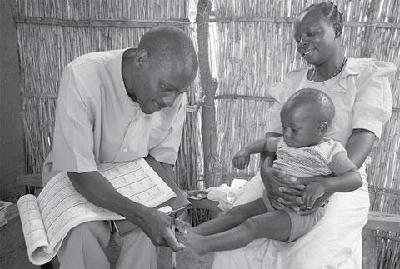
A new report says Norway is the best place in the world to be a mother, while Niger is the worst. The humanitarian group – Save the Children – has released its State of the World's Mothers 2012 report. Save the Children President and CEO Carolyn Miles says the report's been released prior to the annual celebration of Mother's Day.
"The mothers' report is an annual report we do that really looks at all sorts of different factors for moms from around the world. And this year we looked at 165 countries and we look at where is it the best and the worst place to be a mom."
The rankings are based on conditions affecting both women and children.
"We look at the status of women. We look at what it's like to give birth in those countries. We look at the survival rates of kids in those countries. We think that's a big indicator of whether it's a good place to be a mom or not a good place to be a mom. And so those are all the different types of things that we look at," she said.
Best & worst
Save the Children said the best place to be a mother is Norway.
"Norway really does well all across the board. Education rates for women and girls where Norway is number one -- the number of skilled attendants at birth, which is a big indicator for how easy it is to be a mom. Virtually every woman in Norway has an attendant, a skilled attendant at birth. Typically, Norwegian girls can expect to receive 18 years of formal education. So all across the board Norway really comes out quite well," said Miles.
Rounding out the top five are Iceland, Sweden, New Zealand and Denmark. The United States ranks 25th.
At the bottom of the index is Niger, the worst place, according to the report, to be a mother. Miles said there are a lot of reasons why.
"It's kind of a mirror image of Norway," she said, "with everything at the bottom instead of everything at the top. Only one in three births, for example, is attended by a skilled birth attendant. Girls typically get about four years of formal education. Women live to be 56 in Niger as opposed as opposed to 83 in Norway."
Miles says that poor conditions bring tragic results.
"I think to me one of the most striking things in the index this year was that in Niger virtually every mother will lose a child. So as a mom that was really a striking, striking statistic to me. Virtually every mother will have a child die before their fifth birthday," she said.
Other African nations fared poorly as well.
"Most of the countries in the bottom ten are in Africa. So with the exception of Yemen and Afghanistan all the other countries in the bottom ten are African countries. We also look this year at malnutrition, which is a key issue for kids' health under five and obviously that starts with mothers. And that starts with prenatal care and really the rates of malnutrition are really on the rise in about 14 countries and most of them are in sub-Saharan Africa," said Miles.
Besides Niger, the other African countries in the bottom ten are the Democratic Republic of Congo, Sudan, South Sudan, Chad, Eritrea, Mali, and Guinea-Bissau.
Making it better
There are some bright spots though – poor countries that are doing a lot to improve maternal health care. These include Malawi, Nepal and Bangladesh.
The Millennium Development Goals are due in less than three years. But the Save the Children president says the goal to improve maternal and child health can be achieved. Miles says improving child health begins with better nutrition.
"It starts with breastfeeding," said Miles, "That's probably the number one thing that we can do to really accelerate the child survival rates of these poor countries. Because the double burden of both bad nutrition and unclean water in African countries really does hurt us in places like Somalia and Cote d'Ivoire and places like that which are at the very bottom in terms of malnutrition."
The State of the World's Mothers report calls on G8 leaders to make "bold commitments" at their summit this month to end child malnutrition.
It says the report's statistics are "far more than numbers." It says they "call for changes to ensure that mothers everywhere have the basic tools they need to break the cycle of poverty and improve the quality of life."
A birth procedure does little to prevent bleeding
Simple steps can save millions of newborn lives
Stem cells from cord blood may offer way to treat sick children
Many maternal, infant deaths preventable using low-tech methods
(來源:VOA 編輯:旭燕)
